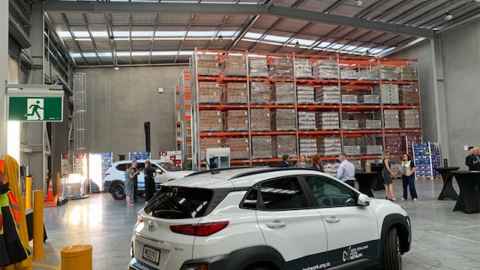Supply chain community collaborates for change

KiwiHarvest is a well-established food rescue charity with five branches throughout New Zealand. They collect food from producers, growers and retailers and distribute it to agencies, iwi and charities that in turn provide food for vulnerable New Zealanders. With food insecurity levels growing rapidly from the start of the COVID-19 pandemic, it quickly became clear that KiwiHarvest’s long-held vision of creating a national supply chain solution to more efficiently handle large volumes of surplus food was desperately needed. In terms of the scale of the need, the Auckland City Mission recently said: “When we went into COVID we already had a significant food insecurity problem in New Zealand - around 10 per cent of our population were food insecure and that's now 20 per cent”.
A dedicated team of industry specialists was assembled to help design a solution and put a proposal to Government to be funded as part of the Wellbeing Budget. The proposal was accepted and over the following 12-15 weeks (during the national lockdown) we sourced, secured and built the infrastructure required to establish the organisation now known as the New Zealand Food Network (NZFN).
Establishing a national food distribution network in such a short timeframe could not have been done without the total commitment of a dedicated team of supply chain professionals and the collaboration of a much wider group. The Supply Chain Advisory Group at the University of Auckland Business School, participants in the Strategic Supply Chain Management Programme and Supply Chain professionals throughout New Zealand provided valuable input. They provided policies and procedures, advising on transport and warehousing costs, using their leverage to shorten lead-times for equipment, and providing a sounding board as we made fast decisions.
The NZFN is now successfully operating with donated food and produce safely stored and distributed throughout the country. In the first few months of operation, we have received and distributed over 532 tonnes of food - the equivalent of 1,520,747 meals.
The task now is to build up the donor network. That way, we can have a regular supply of all food groups to send to organisations around the country who provide directly to food insecure New Zealanders.
Further information can be found at www.nzfoodnetwork.org.nz and www.cpag.org.nz/campaigns/the-latest-aotearoa-land-of-the-long-wide
Suzanne O’Leary is a member of the advisory group for the Centre for Supply Chain Management and Executive Education supply chain programmes.